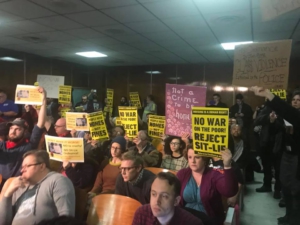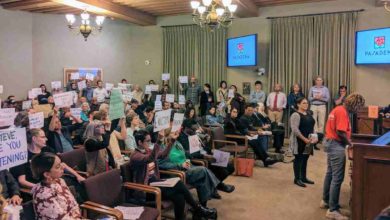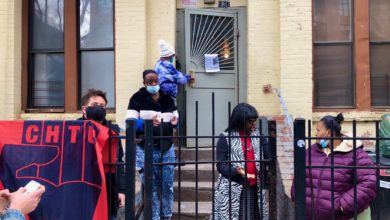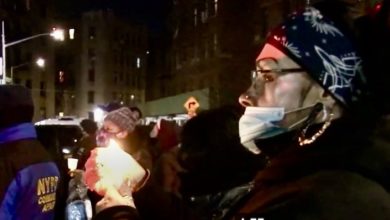Approximately 100 people packed a committee meeting of the Indianapolis City-County Council to demand that councilors reject a proposed “sit-lie ordinance.” The ordinance would criminalize sitting and lying on the sidewalk in the heart of downtown Indianapolis between 6 am and 12 am
The bill’s author, Michael Mcquillen, argued that this ordinance was a necessary measure to address the safety concerns of Indianapolis residents. However, as soon as the ordinance number was read, signs emblazoned with “No War on the Poor, Reject Sit-Lie” and “People Need Homes Not Fines” filled the air.
McQuillen read out a preemptive justification of his legislation, arguing that people had come to him afraid to go downtown. This was met by laughter from the gathered residents. McQuillen then went on to claim
that somehow this ordinance would in fact help the homeless, though he didn’t explain why it would.
McQuillen asserted that $250,000 allocated to police is another way the city government is assisting the homeless.
Individuals experiencing homelessness testified about their own struggle to survive in a capitalist system that, far from assisting them, criminalizes
them and shoves them out of sight. Others connected the struggle of the homeless to the struggles of people with disabilities and people with mental illness.
During the public comment period a few men in suits who identified themselves as “property owners” and “legal partners” lauded what they deemed McQuillen’s bravery. They argued that seeing people experience extreme poverty is offensive and dangerous. One man claimed his multiple secretaries were scared by panhandlers.
Organizers for the Indianapolis ANSWER Coalition (Act Now to Stop War and End Racism) condemned the ordinance as an act of class war carried out on behalf of a morally bankrupt class of billionaires.
In the end, after an hour of testimony overwhelmingly opposing the ordinance, the measure was pushed to the main City-County Council with a “do not pass” recommendation. This likely signals the measure’s defeat, as the council tends to follow such recommendations. However, as many speakers pointed out, progress is more than simply defeating reactionary legislation. Representatives of the people, as this committee claims to be, should be seizing the many empty homes to house the homeless. Funds should be allocated to house the homeless rather than to a racist police force.
What happened during the meeting was an inspiring show of solidarity and force, and perhaps the embryo of a new and militant housing justice movement in the city. We have to ensure that this ordinance is rejected in the City-County Council and continue to organize for real economic and social justice in Indianapolis.







